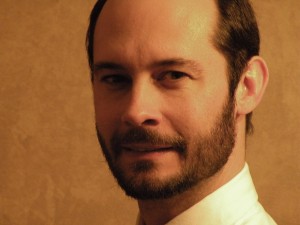A writing community is made up of lots of different people with different life experiences, different skills, and different connections. If we were all the same, maybe community wouldn’t be so important. If writers were all interchangeable, we might only need community for social time.
But because we’re all different, our community can offer so much more. Nobody can be an expert on everything, and sometimes hours of research can’t make a character or plot point as realistic as a conversation with someone who’s been there.
I’m a pilot. I’ve been contacted by writers wanting to know how airplanes work, whether the maneuvers they were describing would be possible, whether their story “felt real.”
I’m not a doctor, but my husband is. If I’ve got a character with a brain injury or a medical student who wants to date his former patient without breaking professional boundaries, I’m going to run my story by him. And he’s not only my personal resource, either. He’s had a long conversation over coffee with another friend of mine, discussing the physiology of werewolves for her novel-in-progress.
These connections aren’t limited to stories, either. When I said I wanted to do a launch party for some of the anthologies I had stories in, I’d never done a launch before. But Marie Bilodeau had. And using her contacts in the Ottawa sci-fi community, my desire for a launch party turned into On the Brink, a series (that’s right, more than one) of launches for up and coming new authors in the Ottawa area.
When I first started submitting my stories for publication, I felt a little nervous. Much to my surprise, an editor I knew from my fandom days was taking submissions for an anthology. Had I not submitted a story that was of equal quality to the others she selected, I wouldn’t have gotten in. But if I hadn’t known the editor–if I hadn’t kept in contact with her via Facebook–I would never have known that she was taking submissions. (I discovered the Open Call facebook groups, Duotrope, and other market listings, later on!)
In fact, the only reason I went to Superstars–and met the Tribe, became a Fictorian, and appeared in the Purple Unicorn anthology (and upcoming Red Unicorn anthology) was because another writer friend of mine–not a Superstars instructor–posted about it on her blog.
And what goes around comes around–when the same person really needed to talk to a police department in Maine to get correct information for her recent novel, I was able to use my personal contacts to make that introduction happen.
Writers share information. Opportunities. Feedback. Advice. Maybe you don’t know how to do something, but someone else you know does. Or maybe someone else has a main character who’s about to climb Mount Everest, but he doesn’t know a lot about mountain climbing. If that’s what your mom does for a living, you can help that person out.
As with all things, moderation is key. You won’t win yourself long-term support if you’re the person who’s always demanding help without ever giving anything in return. Equally, you won’t build yourself a career as a writer if you spend all your writing time helping other writers instead of writing your own stuff. But when everyone contributes fairly, the writing community becomes a big support net(work), and it lifts us all up.






 Evan Braun is an author and editor who has been writing books for more than ten years. He is the author of The Watchers Chronicle, whose third volume, The Law of Radiance, has just been released. He specializes in both hard and soft science fiction and lives in the vicinity of Winnipeg, Manitoba.
Evan Braun is an author and editor who has been writing books for more than ten years. He is the author of The Watchers Chronicle, whose third volume, The Law of Radiance, has just been released. He specializes in both hard and soft science fiction and lives in the vicinity of Winnipeg, Manitoba.